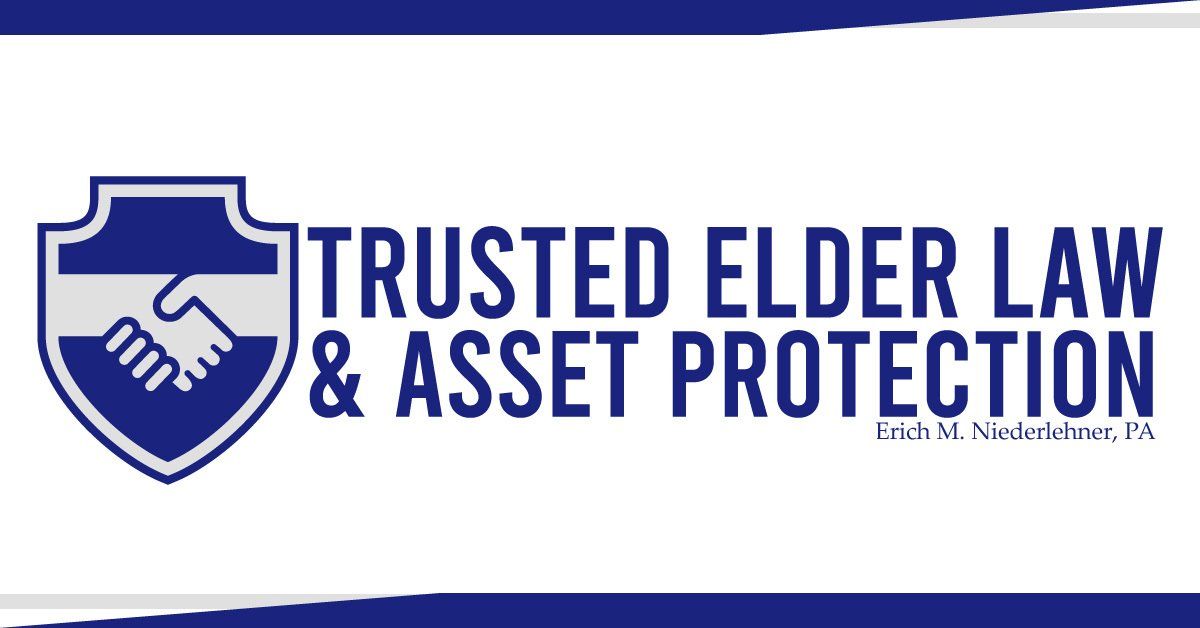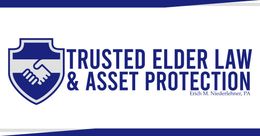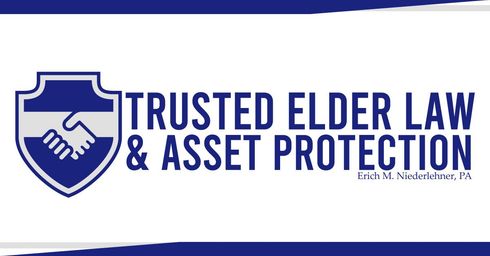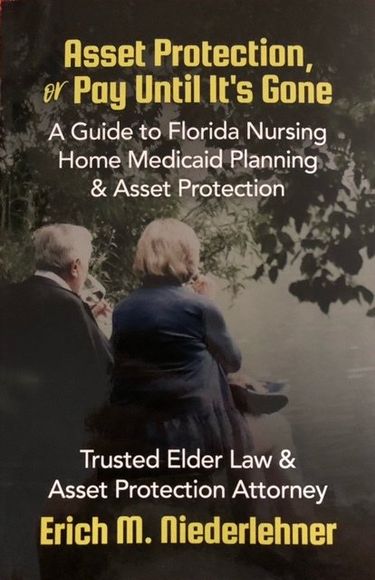-
What Medicaid programs are available to Floridians who are disabled or over 65 years of age?
Florida Medicaid provides a range of health coverage options for seniors (65 and older) and disabled adults. The following are the main Medicaid programs in Florida for these populations:
- Institutional Care Program (ICP): This program provides coverage for nursing home care for individuals who are eligible for Medicaid but do not meet the eligibility criteria for LTC Medicaid.
- Home and Community-Based Services (HCBS) Waiver Program: This program provides in-home and community-based services to eligible seniors and disabled adults who would otherwise require institutional care. To qualify, individuals must meet functional and financial eligibility criteria and have a care plan that outlines the services they require.
- Medicaid State Plan: This is the traditional Medicaid program that provides comprehensive health coverage to eligible individuals. To qualify, individuals must meet financial and citizenship eligibility criteria.
- Medicare Savings Programs (MSPs): These programs help eligible seniors pay for their Medicare premiums, deductibles, and coinsurance. To qualify, individuals must meet financial eligibility criteria.
These programs have different eligibility requirements and criteria, including income and asset limits, age, disability status, and citizenship status. It's best to contact Trusted Elder Law & Asset Protection for more information and to determine your eligibility for these programs.
-
What are the qualifications to receive Florida Medicare savings programs (maps)?
To qualify for Medicare Savings Programs (MSPs) in Florida, an individual must meet the following financial eligibility criteria:
- Qualified Medicare Beneficiary (QMB) Program: To be eligible for QMB, an individual's income must not exceed 100% of the Federal Poverty Level (FPL), and their assets (including countable savings and investments) must not exceed $7,560 for an individual or $11,340 for a married couple.
- Specified Low-Income Medicare Beneficiary (SLMB) Program: To be eligible for SLMB, an individual's income must not exceed 120% of the FPL, and their assets (including countable savings and investments) must not exceed $7,560 for an individual or $11,340 for a married couple.
- Qualifying Individual (QI) Program: To be eligible for QI, an individual's income must not exceed 135% of the FPL, and their assets (including countable savings and investments) must not exceed $7,560 for an individual or $11,340 for a married couple.
Note that these income and asset limits are subject to change and may vary based on current Federal Poverty Level guidelines. In addition to the financial eligibility criteria, individuals must also be enrolled in Medicare Part A and have limited resources to pay for their Medicare premiums and costs. It's best to contact Trusted Elder Law & Asset Protection for more information and to determine your eligibility for MSPs.
-
What are the qualifications to be eligible for the Florida ICP Medicaid program (which pays for long-term nursing home care)?
To be eligible for Florida's Medicaid Institutional Care Program (ICP), an individual must meet the following criteria:
- Be a Florida resident
- Be aged 65 years or older, blind or disabled
- Have income below the program's limit which as of 2023 the gross income must be below $2,742.00 a month
- Require a level of care that can only be provided in a nursing home or similar facility
- Have countable assets below $2,000 for an individual.
It's recommended you check with Trusted Elder Law & Asset Protection for the most up-to-date information on eligibility requirements and to apply for the program.
-
What are the qualifications to be eligible for the Florida Medicaid-waiver program?
To be eligible for a Florida Medicaid waiver program, an individual must meet the following criteria:
- Be a Florida resident
- Be eligible for Medicaid
- Require a level of care that can only be provided in a nursing home or similar facility, but prefer to receive services in a community setting
- Meet Medicaid income and assets requirements.
In addition to these general eligibility criteria, specific waiver programs may have additional requirements. It's recommended to check with Trusted Elder Law & Asset Protection for the most up-to-date information on eligibility requirements and to apply for the program.
-
Does Florida recognize an enhanced life estate (Ladybird) deeds?
An enhanced life estate deed, also known as a "Ladybird" deed, is recognized in several states in the United States, including Florida. A ladybird deed is like a regular life estate deed except the grantor reserves the right to live in the property for life, but also the ability to sell, mortgage, rent or even change the remainderman all without the need of consent with the named remainderman. However, it is important to note that this type of deed is not recognized in all states, and the specific laws and regulations surrounding enhanced life estate deeds can vary between states. Before utilizing an enhanced life estate deed, it is important to consult with Trusted Elder Law & Asset Protection, who is knowledgeable about the law of Florida, and discuss the best course of action for your specific situation.
-
What are activities of daily living?
Activities of daily living (ADLs) are basic self-care tasks that are necessary for daily living and independence. The following are the most commonly recognized ADLs:
- Bathing
- Dressing
- Toileting
- Transferring (e.g., moving from a bed to a chair)
- Continence (managing bowel and bladder function)
- Feeding (including preparing meals)
Assessment of an individual's ability to perform ADLs is often used to determine their level of care needs and eligibility for certain programs, such as Medicaid waiver programs or long-term care insurance policies.
-
What is the the maximum gross income one can have and still qualify for Florida ICP Medicaid?
The maximum gross income an individual can have and still qualify for Florida's Medicaid Institutional Care Program (ICP) is determined by the state of Florida and is subject to change. As of 2023 the gross monthly income limit is $2,742.00, the income limit for Florida Medicaid is based on the Federal Poverty Level (FPL) and can vary based on individual circumstances.
For a single person, if their monthly income is less than or equal to the FPL, they may be eligible for Medicaid ICP. It is important to note that Medicaid has both an income limit and an asset limit, and the individual's assets (such as bank accounts, stocks, and real estate) must also fall below a certain threshold to be eligible for the program.
For the most up-to-date information on income and asset limits for Florida Medicaid, please contact Trusted Elder Law & Asset Protection.
-
How many ADLs must one not be able to complete to qualify for Florida ICP Medicaid?
The specific number of activities of daily living (ADLs) that an individual must be unable to complete to qualify for Florida's Medicaid Institutional Care Program (ICP) is not determined by a set number of ADLs. Instead, eligibility for Medicaid ICP is based on an assessment of the individual's functional status and care needs, taking into account their ability to perform ADLs as well as other factors such as physical and mental health, safety, and overall well-being.
If an individual is unable to perform several ADLs on their own and requires a high level of care, they may be determined to be eligible for Medicaid ICP. The final decision on eligibility is made by the Florida Medicaid office after a comprehensive assessment and review of the individual's circumstances.
-
What programs are offer by Florida Medicaid?
Florida Medicaid offers a range of programs and services to eligible individuals, including the following:
- Medicaid Institutional Care Program (ICP)
- Medicaid Waiver Programs
- Medicaid State Plan
- Home and Community-Based Services (HCBS) Waivers
- Long-Term Care (LTC) Program
- Medically Needy Program
- Children's Medical Services (CMS)
- Program of All-Inclusive Care for the Elderly (PACE)
- Low Income Pool (LIP) Program
- Children's Health Insurance Program (CHIP)
- Medicaid for Pregnant Women
- Medicaid for the Aged and Disabled
This list is not exhaustive, and the programs offered by Florida Medicaid can change over time to learn more about the current programs and their qualifications. Please contact Trusted Elder Law & Asset Protection for the latest details.
-
How does one pay for long-term care in Florida?
There are several ways to pay for long-term care in Florida, including:
- Private Pay: paying for care out of pocket, either with personal savings or by selling assets such as real estate.
- Long-Term Care Insurance: purchasing a long-term care insurance policy that covers some or all of the costs of long-term care.
- Medicaid: if an individual meets the eligibility requirements, they may be able to receive long-term care services through Florida's Medicaid program. Medicaid will pay for care in a nursing home or other facility and, in some cases, in-home care.
- Veterans Benefits: if an individual is a veteran, they may be eligible for long-term care benefits through the Department of Veterans Affairs.
- Medicare: Medicare may provide limited coverage for long-term care services, but it does not cover the full cost of long-term care.
It's important to note that the cost of long-term care can vary widely depending on the type of care received and the location, and these payment options may change. It's recommended to consult with Trusted Elder Law & Asset Protection to discuss the best options for paying for long-term care in Florida.
-
What is a qualified Medicaid income trust, also know as a Miller trust?
A Qualified Income Trust, also known as a Miller Trust, is a special type of trust that can help individuals who have too much income to qualify for Medicaid to receive Medicaid coverage for long-term care. This type of trust is used to hold the individual's income and assets in a manner that will not disqualify them from Medicaid eligibility.
The trust is named after a court case (Miller v. Dept. of Social Services) in which the court ruled that an individual's excess income could be placed in a trust and not counted as part of the individual's assets for purposes of Medicaid eligibility. The trust is specifically designed to meet the requirements of Medicaid law and regulations, and is used to pay for the individual's long-term care expenses.
A Qualified Income Trust can be a useful tool for individuals who need long-term care and have income that exceeds the Medicaid limit, but it can also be complex to set up and manage. It is recommended to seek the guidance of an elder law attorney or financial advisor when considering a Miller Trust.
If you or a loved one needs a QIT or other Medicaid planning, please contact Trusted Elder Law & Asset Protection to discuss your specific situation.
-
What is a pooled special needs trust?
A Pooled Special Needs Trust is a type of trust used to hold and manage assets for individuals with disabilities. The trust is "pooled" in the sense that the assets of multiple individuals with disabilities are combined and managed together.
A Pooled Special Needs Trust is designed to preserve an individual's eligibility for government benefits programs such as Medicaid and Supplemental Security Income (SSI) while allowing them to receive additional financial support. The trust can be used to pay for expenses that are not covered by government benefits, such as medical expenses, education, and recreation.
The trust is managed by a nonprofit organization, and the individual with a disability is typically not the sole beneficiary of the trust. Upon the individual's death, any remaining assets in the trust are used to repay Medicaid for benefits received.
A Pooled Special Needs Trust can be a useful tool for families of individuals with disabilities who want to provide additional support while preserving their eligibility for government benefits. However, it can also be complex to set up and manage, and it is recommended you contact Trusted Elder Law & Asset Protection to discuss a Pooled Special Needs Trust or other Medicaid planning asset protection tools.
-
What is a first party special needs trust?
A First Party Special Needs Trust (also known as a Self-Settled Special Needs Trust) is a type of trust that is created and funded with the assets of an individual with a disability. The trust is established for the sole purpose of benefiting the individual with a disability, who is typically the beneficiary of the trust.
The purpose of a First Party Special Needs Trust is to preserve an individual's eligibility for government benefits programs, such as Medicaid and Supplemental Security Income (SSI), while allowing them to receive additional financial support. The trust can be used to pay for expenses that are not covered by government benefits, such as medical expenses, education, and recreation.
A First Party Special Needs Trust can be established by the individual with a disability, their parent, grandparent, legal guardian, or a court. Upon the individual's death, any remaining assets in the trust are used to repay Medicaid for benefits received.
A First Party Special Needs Trust can be a useful tool for individuals with disabilities and their families who want to provide additional support while preserving eligibility for government benefits. However, it can also be complex to set up and manage, and it is recommended you contact Trusted Elder Needs & Asset Protection to seek the guidance when considering a First Party Special Needs Trust.
-
What is a 3rd party special needs trust?
A Third Party Special Needs Trust is a type of trust that is established and funded by someone other than the individual with a disability. The purpose of a Third Party Special Needs Trust is to provide financial support for an individual with a disability without jeopardizing their eligibility for government benefits programs such as Medicaid and Supplemental Security Income (SSI).
The trust can be established by a parent, grandparent, friend, or any other individual who wants to provide support for the individual with a disability. The trust is used to pay for expenses that are not covered by government benefits, such as medical expenses, education, and recreation.
A Third Party Special Needs Trust can be established during the grantor's lifetime or through their will. Unlike a First Party Special Needs Trust, a Third Party Special Needs Trust does not need to be established with the assets of the individual with a disability and does not affect their eligibility for government benefits.
A Third Party Special Needs Trust can be a useful tool for individuals who want to provide additional support for a loved one with a disability without jeopardizing their eligibility for government benefits. However, it can also be complex to set up and manage, and it is recommended to seek the guidance of Trusted Elder Law & Asset Protection, when considering a Third Party Special Needs Trust.
-
What is a personal services contract used in Medicaid planning?
A Personal Services Contract is a type of agreement used in Medicaid planning to help individuals with disabilities or their families pay for long-term care. It is a contract between an individual and a caregiver in which the caregiver provides personal care services in exchange for payment. The payment can come from the individual's own funds, from a trust, or from a government benefits program such as Medicaid.
Personal Services Contracts can be used in Medicaid planning to help individuals with disabilities or their families pay for care without jeopardizing their eligibility for government benefits. For example, if an individual has too much income or too many assets to qualify for Medicaid, a Personal Services Contract can be used to pay a caregiver directly, which reduces the individual's income and assets.
It is important to note that Personal Services Contracts must meet certain requirements set by Medicaid in order to be considered valid. For example, the contract must be in writing and must specify the services that will be provided and the compensation to be paid. The caregiver must be someone other than a spouse or family member, and the contract must not provide for excessive compensation.
Personal Services Contracts can be a useful tool for Medicaid planning, but they can also be complex to set up and manage. It is recommended to seek the guidance of Trusted Elder Law & Asset Protection, when considering a Personal Services Contract.
-
What does and Florida Elder Law attorney like Trusted Elder Law & Asset Protection do?
An Elder Law attorney in Florida specializes in providing legal services to seniors and their families. Elder Law is a practice area that focuses on the legal issues that are most relevant to older adults, such as estate planning, Medicaid planning, retirement planning, and long-term care planning.
An Elder Law attorney in Florida can assist with the following tasks:
- Estate Planning: drafting wills, trusts, powers of attorney, and other estate planning documents.
- Medicaid Planning: helping clients to understand Medicaid eligibility rules and how to structure their assets to qualify for Medicaid.
- Retirement Planning: providing advice on Social Security, pensions, and other retirement benefits.
- Long-term Care Planning: helping clients to plan for their long-term care needs, including in-home care, assisted living, and nursing home care.
- Guardianship: representing clients in guardianship proceedings and advising clients on the appointment of a guardian.
- Probate: handling probate proceedings and assisting with the administration of an estate.
- Medicaid and Medicare: advising clients on Medicaid and Medicare benefits, including how to appeal denials of benefits.
Trusted Elder Law & Asset Protection attorney can provide valuable support and guidance to seniors and their families as they navigate the legal issues related to aging. By working with an experienced attorney like Trusted Elder Law & Asset Protection, clients can feel confident that their legal needs are being met and that their rights and interests are protected.
-
Can Medicaid get your homestead property in the state of Florida?
In general, homestead property in the state of Florida is protected from forced sale by creditors, including Medicaid, as long as certain requirements are met. Under Florida law, a person's homestead property is considered exempt from forced sale, which means that it cannot be seized or sold to pay off debts.
However, there are some exceptions to the homestead exemption in Florida. For example, if a person's homestead property is used to secure a debt, such as a mortgage, it may be subject to forced sale to pay off the debt. Additionally, if a person has a reverse mortgage on their homestead property, the property may be subject to forced sale to pay off the debt after the person dies or moves out.
In the context of Medicaid planning, a person's homestead property may be considered a countable asset for Medicaid eligibility purposes. If a person's homestead property has a fair market value that exceeds Medicaid's asset limits, they may need to sell the property or use other Medicaid planning strategies in order to become eligible for Medicaid benefits.
It is important to note that Medicaid laws and regulations are subject to change, and it is recommended to seek the guidance of Trusted Elder Law & Asset Protection, when considering Medicaid planning in the state of Florida.
-
How is rental property not a countable asset when applying to Florida ICP Medicaid?
Rental property is typically not considered a countable asset for Medicaid eligibility purposes in Florida if the applicant is not receiving rental income from the property. When determining Medicaid eligibility, Medicaid looks at the applicant's countable assets, which are assets that are available to the applicant for their support and maintenance. If the rental property is not producing any income for the applicant, it is not considered a countable asset.
However, if the applicant is receiving rental income from the property, the rental income may be counted as part of the applicant's income for Medicaid eligibility purposes. In this case, the rental property may be considered a countable asset, and the applicant may need to use other Medicaid planning strategies to become eligible for Medicaid benefits.
It is important to note that Medicaid laws and regulations are subject to change, and it is recommended to seek the guidance of Trusted Elder Law & Asset Protection, when considering Medicaid planning in the state of Florida. An experienced attorney can help ensure that the applicant's assets and income are properly accounted for in the Medicaid eligibility determination process.
-
When applying to Florida Medicaid are IRAs, 401k or other qualified retirement accounts considered countable assets?
In general, IRAs, 401(k)s, and other qualified retirement accounts are considered countable assets for Medicaid eligibility purposes in Florida. When determining Medicaid eligibility, Medicaid looks at the applicant's countable assets, which are assets that are available to the applicant for their support and maintenance. IRAs, 401(k)s, and other qualified retirement accounts are typically considered countable assets because they are assets that the applicant has access to and can use for their support and maintenance.
However, it is important to note that there are some Medicaid planning strategies that can be used to protect IRAs, 401(k)s, and other qualified retirement accounts from being counted as assets for Medicaid eligibility purposes. For example, a Medicaid Qualified Income Trust (also known as a Miller Trust) can be used to shelter certain income, including retirement account distributions, so that they are not counted as assets for Medicaid eligibility purposes.
It is recommended to contact Trusted Elder Law & Asset Protection, when considering Medicaid planning in the state of Florida. An experienced attorney can help ensure that the applicant's assets and income are properly accounted for in the Medicaid eligibility determination process and can advise on strategies to protect assets, including IRAs, 401(k)s, and other qualified retirement accounts.
-
What is the five year look back rule with regards to Florida Medicaid programs?
The five-year look-back rule is a provision in the Medicaid program that affects eligibility for long-term care benefits. The rule requires Medicaid to review an applicant's financial transactions for the five years prior to the date of the Medicaid application to determine if the applicant transferred assets for less than fair market value.
Under the five-year look-back rule, if Medicaid determines that an applicant transferred assets for less than fair market value during the five years prior to the Medicaid application, the applicant may be subject to a penalty period during which they are not eligible for Medicaid benefits. The length of the penalty period is determined by dividing the amount of the asset transfer by the average monthly cost of nursing home care in the state.
It is important to note that the five-year look-back rule applies to all transfers of assets, regardless of the reason for the transfer. This includes transfers made for estate planning purposes, gifts to family members, or other reasons.
It is recommended to consult with Trusted Elder Law & Asset Protection, to determine the potential impact of the five-year look-back rule on Medicaid eligibility and to implement appropriate Medicaid planning strategies to protect assets. An attorney can also advise on timing of Medicaid applications and other strategies to minimize the impact of the five-year look-back rule.
-
What affects does ending the federal Covid emergency declaration have on Florida Medicaid beneficiaries?
The ending of the federal COVID-19 emergency declaration may affect Medicaid beneficiaries in Florida, but the exact impact will depend on the specific actions taken by state and federal governments in response to the end of the declaration. During the emergency declaration, federal funding and flexibility were provided to states to help them respond to the pandemic and maintain Medicaid services for beneficiaries. The end of the emergency declaration could result in changes to funding levels, program requirements, and eligibility criteria for Medicaid in Florida. It's important to note that the details of these changes are not yet clear and will depend on the specific actions taken by state and federal officials in response to the end of the emergency declaration.
It's important for Florida Medicaid beneficiaries to stay informed about any changes to the program and to seek guidance from Trusted Elder Law & Asset Protection, as needed. Medicaid is a complex program, and changes to the program as a result of the end of the emergency declaration could have a significant impact on beneficiaries.
-
What benefits does one receive through the Florida Qualified Medicare beneficiary program?
The Qualified Medicare Beneficiary (QMB) program in Florida, also known as the Amber program, helps eligible low-income Medicare beneficiaries pay for their Medicare Part A and Part B premiums, deductibles, and coinsurance. Through this program, individuals receive the following benefits:
Premium Coverage: The QMB program covers the monthly Medicare Part B premium for eligible individuals, which can be a significant cost savings.
Cost Sharing Assistance: The program also helps cover the deductibles, copays, and coinsurance that are associated with Medicare Part A and Part B services, such as hospital stays, doctor visits, and laboratory tests.
Protections against Medical Debt: By covering the cost sharing for Medicare services, the QMB program helps protect eligible individuals from medical debt and helps ensure that they receive the care they need.
The QMB program is designed to help low-income individuals who are already enrolled in Medicare, and it is important to note that the program does not provide additional health services beyond what is covered under Medicare. If you think you might be eligible for the QMB program in Florida, you can contact the Trusted Elder Law & Asset Protection for more information.
-
Who should I contact for Medicaid Planning and obtain Medicaid long-term care benefits
Please contact Trusted Elder Law & Asset Protection to learn more about Medicaid benefits available to you or a loved one. The Elder Law attorney of Trusted Elder Law & Asset Protection can be reached by calling 855-ELDER-FIRM or 850-607-2222 or by emailing at Erich@TrustedElderLaw.com.

About Trusted Elder Law & Asset Protection Law Firm
I strive to improve your quality of life, while protecting your assets
What our clients are saying
“Mr. Niederlehner, You are more than kind and I do so thank you! What a pleasure to do business with such an efficient attorney!”
Joanna, Destin, FL
“Erich is a real credit to his profession. He provided helpful solutions for our families worries. Thank you so much for your guidance and help.”
Madelaine, Gulf Breeze, FL
“After two years of paying out of pocket for the nursing home for my Mom, Erich helped protect her assets allowing Medicaid to take over paying the nursing home bill.”
David, Milton, FL
“Erich provided great analysis, knowledge, and instruction. Most importantly, he helped me protect my father's assets and get him qualified for Medicaid. ”
Jane, Pensacola, FL
My goal is to enable you to live a long independent life of your own choosing while protecting and preserving your assets.

SERVICES:
CONTACT:
855-ELDER-FIRM
Erich@TrustedElderLaw.com
1202 W. Garden Street
Pensacola, Florida 32502
Trusted Elder Law & Asset Protection Law Firm
We help Florida & Alabama families prepare and protect assets from nursing homes, governments and creditors through proper planning.
Pensacola, Florida 32502
We help Florida & Alabama families prepare and protect assets from nursing homes, governments and creditors through proper planning.



